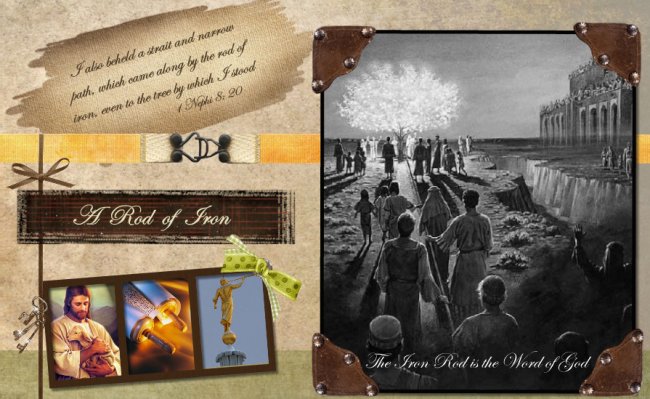Read Alma 40
Read Alma 41
In Alma 40 we find Alma continuing his discussion and counsel with Corianton. Alma sees that Corianton is unsure about the resurrection of the dead. This is important as Alma is trying to teach Corianton to be chaste and to not be boastful and to repent. Corianton needs to get a clear understanding of the Plan of Salvation. So Alma tells Corianton that when we die we will remain in either Spirit Paradise or Spirit Prison.
12 And then shall it come to pass, that the spirits of those who are righteous are received into a state of happiness, which is called paradise, a state of rest, a state of peace, where they shall rest from all their troubles and from all care, and sorrow.
13 And then shall it come to pass, that the spirits of the wicked, yea, who are evil—for behold, they have no part nor portion of the Spirit of the Lord; for behold, they chose evil works rather than good; therefore the spirit of the devil did enter into them, and take possession of their house—and these shall be cast out into outer darkness; there shall be weeping, and wailing, and gnashing of teeth, and this because of their own iniquity, being led captive by the will of the devil.
14 Now this is the state of the souls of the wicked, yea, in darkness, and a state of awful, fearful looking for the fiery indignation of the wrath of God upon them; thus they remain in this state, as well as the righteous in paradise, until the time of their resurrection.
Alma explains that the Resurrection is a literal reunion of body and soul to a perfect state. Corianton as well as many people in our time, did not fully grasp this principle.
23 The soul shall be restored to the body, and the body to the soul; yea, and every limb and joint shall be restored to its body; yea, even a hair of the head shall not be lost; but all things shall be restored to their proper and perfect frame.
Alma alludes to the fact that judgement follows the resurrection when he states:
25 And then shall the righteous shine forth in the kingdom of God.
26 But behold, an awful death cometh upon the wicked; for they die as to things pertaining to things of righteousness; for they are unclean, and no unclean thing can inherit the kingdom of God; but they are cast out, and consigned to partake of the fruits of their labors or their works, which have been evil; and they drink the dregs of a bitter cup.
This is a basic principle that we sometimes take the knowledge of for granted. There are many who doubt or lack understanding of this principle - even Alma's son did.
In the following chapter Alma continues to expound to Corianton the need for the Atonement.
Alma first points out the fact that God is Just. Because He is just we must be judged. Do we fully uinderstand for what we are judged? If it is solely our actions then we are all in the gall of bitterness because we make mistakes and commint sin on a daily basis. Truly we are judged for our DESIRES and actions. This doesn't mean that we say 'well I want to be good'. Judgement will be upon true and sincere desires and how we acted upon those desires. Did we repent? Did we try? Or are we just lying to ourselves and pretending to care? If we desire to do good then many of our works will be for good. If we desire to be sinful and evil then many of our actions will be evil. Judgement looks at the actions and the desires and weighed accordingly.
3 And it is requisite with the justice of God that men should be judged according to their works; and if their works were good in this life, and the desires of their hearts were good, that they should also, at the last day, be restored unto that which is good.
4 And if their works are evil they shall be restored unto them for evil. Therefore, all things shall be restored to their proper order, every thing to its natural frame—mortality raised to immortality, corruption to incorruption—raised to endless happiness to inherit the kingdom of God, or to endless misery to inherit the kingdom of the devil, the one on one hand, the other on the other—
5 The one raised to happiness according to his desires of happiness, or good according to his desires of good; and the other to evil according to his desires of evil; for as he has desired to do evil all the day long even so shall he have his reward of evil when the night cometh.
6 And so it is on the other hand. If he hath repented of his sins, and desired righteousness until the end of his days, even so he shall be rewarded unto righteousness.
7 These are they that are redeemed of the Lord; yea, these are they that are taken out, that are delivered from that endless night of darkness; and thus they stand or fall; for behold, they are their own judges, whether to do good or do evil.
The next verse is important, simple, and to the point. Basically what God says is what is - you can't changed it, and that their is the same opportunity for all mankind to return to God via the plan.
8 Now, the decrees of God are unalterable; therefore, the way is prepared that whosoever will may walk therein and be saved.
Alma again tells his son to stop committing sinL
9 And now behold, my son, do not risk one more offense against your God upon those points of doctrine, which ye have hitherto risked to commit sin.
10 Do not suppose, because it has been spoken concerning restoration, that ye shall be restored from sin to happiness. Behold, I say unto you, wickedness never was happiness.
Now if wickedness never was happiness then why are we all so drawn to it? What is there about it that makes us feel 'good'? What is happiness anyway? I can tell you that a search on wikipedia isn't going to provide much insight into the happiness that is referred to here by Alma.
In 2nd Nephi, Lehi tells us that without righteousness there would be no happiness. Tell me then why is happiness hinged completely upon righteousness as Alma and Lehi teach us? I am leaving this open for discussion.








1 comments:
Thank you for the reminder. We all need to remember what true happiness is.
Post a Comment